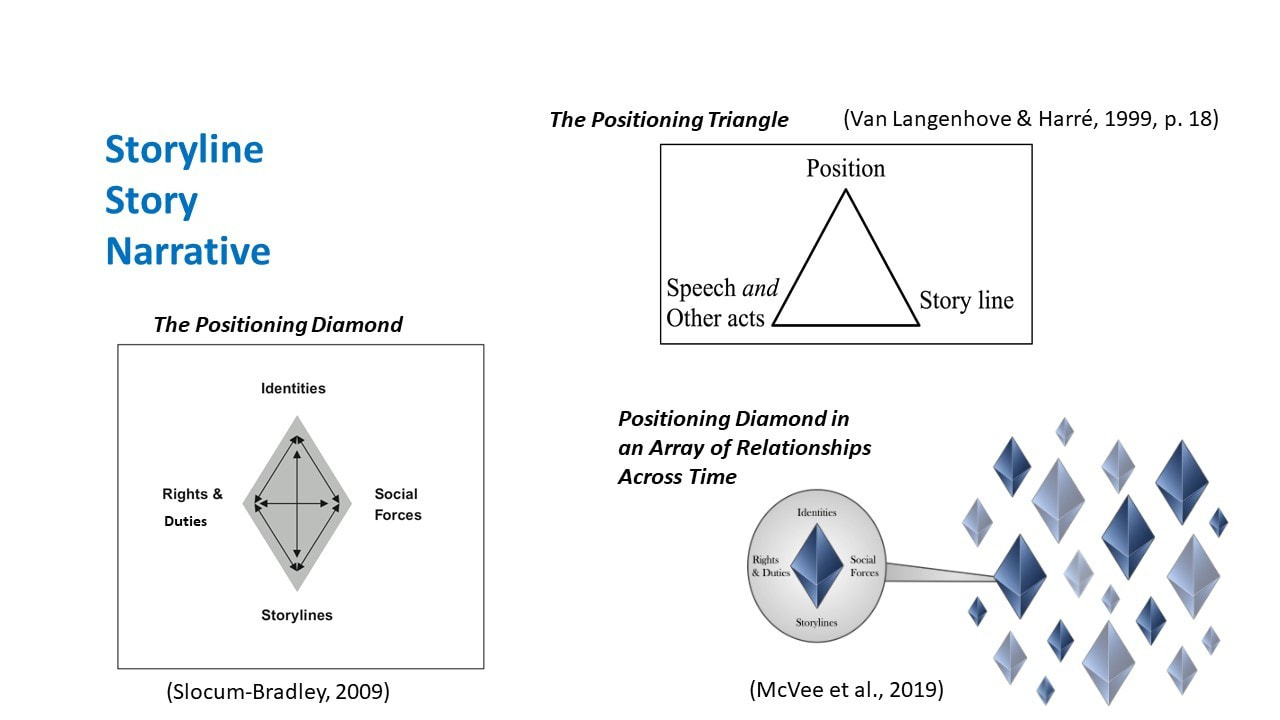Positioning Theory
(2025-09-17T19:55.484Z)
Perplexity Query
(2025-09-17T19:55
.484Z)
Question:
Write a comprehensive one-page article about "Positioning Theory".
Model: sonar-pro
Positioning Theory: Understanding Social Roles, Narratives, and Power Dynamics
Introduction
Positioning Theory is a framework in social psychology that examines how individuals assign and negotiate social roles, responsibilities, and moral rights through discourse and social interactions.
[ihip9e]
This theory is significant because it reveals how our behaviors and identities are shaped dynamically by context, conversation, and power relations, offering deep insights into both personal and collective experiences.
[ihip9e]
[56me48]

Main Content
Positioning Theory centers on the concept of positions: clusters of beliefs about rights, duties, and obligations that individuals assume in their interactions.
[ihip9e]
[4ku6nk]
Unlike fixed “roles” in traditional role theory, positions are malleable and change depending on situation, conversation, and the underlying “storylines” that guide interactions. These storylines—the recurring narratives or scripts individuals use—determine the meaning of their actions and set the boundaries for what can be said or done within a social episode.
[ihip9e]
[4ku6nk]
For example, in a classroom, a teacher positions themselves (and is positioned by others) as an authority, with specific rights (to discipline) and duties (to educate). Students, in turn, may challenge, accept, or negotiate these positions in real time, shaping the evolving moral order of the group.
[ihip9e]
Similarly, in business meetings, participants position themselves as experts, learners, or decision-makers, influencing who speaks, who leads, and how outcomes are determined.
[56me48]
Practical applications of Positioning Theory span education, communication, anthropology, artificial intelligence, and political science.
[ihip9e]
[56me48]
Teachers use it to better understand student engagement; conflict mediators apply it to clarify power dynamics and the distribution of responsibility; and designers of AI systems invoke it to model human-like conversational behavior and moral reasoning.
[56me48]
By making implicit assumptions about authority, vulnerability, and responsibility explicit, Positioning Theory helps organizations create more inclusive and responsive environments.
Some key benefits of Positioning Theory include:
- Ability to analyze shifting identities and “self-concept,” including how people change their stories depending on audience and context [ihip9e]
- Greater clarity in mapping social expectations, duties, and vulnerabilities—useful in both everyday encounters and complex ethical discussions [4ku6nk]
However, there are challenges to implementing Positioning Theory:
- The fluid nature of positions means analysis can be subjective, requiring careful interpretation of context and discourse. [ihip9e]
- Cultural, legal, and institutional orders may pre-define positions, limiting individual agency. [ihip9e]
- It demands nuanced understanding of both explicit language and implicit assumptions, lending complexity to practical applications.

Current State and Trends
Positioning Theory has gained traction since its development in the 1990s, primarily through the work of Bronwyn Davies, Rom Harré, Luk Van Langenhove, and Fathali Moghaddam.
[ihip9e]
[4ku6nk]
Today it is a recognized framework in discourse analysis, organizational development, and AI research.
[56me48]
In education and communication, practitioners increasingly use Positioning Theory to support transformational leadership, resolve conflicts, and analyze social narratives.
[ihip9e]
[56me48]
Recent developments include its integration with moral and cultural psychology, the rise of digital “positions” in online communities, and its influence on design strategies for autonomous and ethically aware artificial intelligence systems.
[56me48]
[4ku6nk]
Key players in academia and technology are expanding its analytic and practical reach, providing new tools to examine both micro-level interactions and large-scale social phenomena.

Future Outlook
As societies become more interconnected and technology increasingly mediates human interaction, Positioning Theory is poised to play a central role in redefining how we understand social encounters, automated systems, and digital identities. Researchers expect more sophisticated applications in human-AI collaboration, conflict resolution, and the mapping of multicultural moral landscapes, with profound impacts on global communication and ethics.
Conclusion
Positioning Theory offers a powerful lens to analyze how rights, duties, and identities are constructed and negotiated in every social situation.
[ihip9e]
[56me48]
[4ku6nk]
As our world grows more complex and technology-driven, its relevance and utility are only set to deepen—empowering individuals and organizations to navigate the shifting terrain of discourse and power.
Citations
[ihip9e] 2025, May 24. Positioning theory - Wikipedia. Published: 2020-11-11 | Updated: 2025-05-24
[56me48] 2025, Sep 03. What's your position? - Wellbeing and Control. Published: 2017-12-22 | Updated: 2025-09-03
[4ku6nk] 2025, Apr 26. [PDF] Theory & Psychology - Fathali Moghaddam. Updated: 2025-04-26
[4]: 2025, Jun 22. Positioning Theory: Moral Dimensions of Social-Cultural Psychology. Published: 2012-05-02 | Updated: 2025-06-22
[5]: 2025, Sep 14. [PDF] Positioning Theory for English-Medium Instruction (EMI) praxis. Updated: 2025-09-14
[6]: 2025, Jul 15. Positioning Theory and Discourse Analysis | 9. Published: 2020-05-01 | Updated: 2025-07-15
[7]: 2025, Sep 11. . Published: 2024-02-27 | Updated: 2025-09-11
[8]: 2025, Aug 05. Social positioning theory and Dewey's ontology of persons, objects .... Published: 2022-03-22 | Updated: 2025-08-05